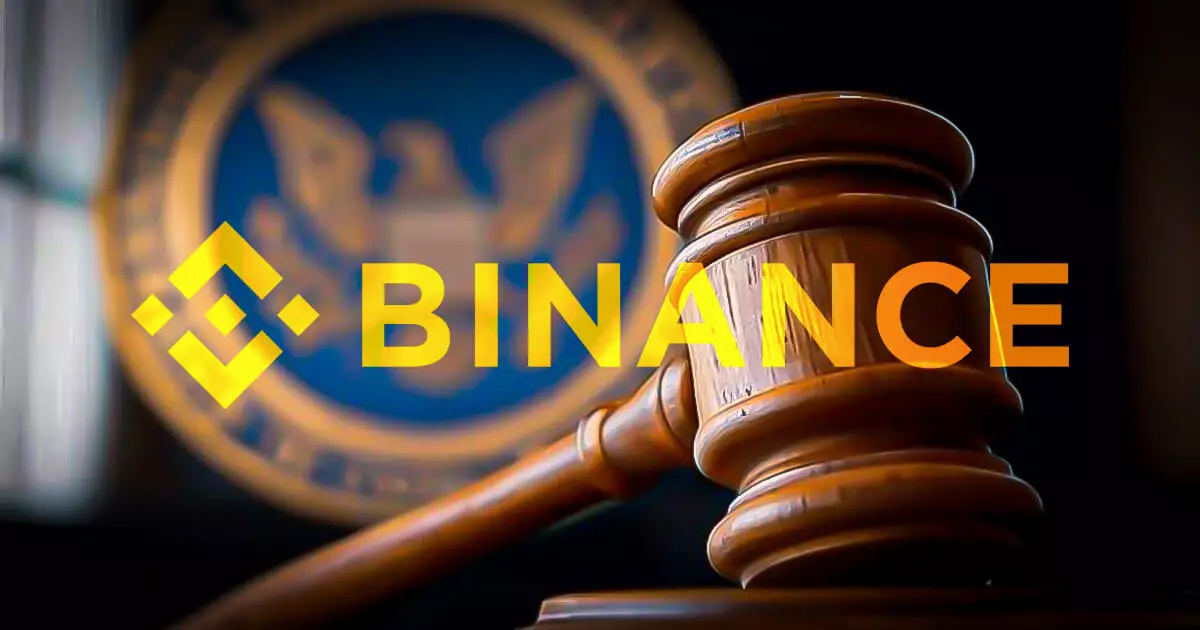In a significant turn of events, the U.S. Securities and Exchange Commission (SEC) and cryptocurrency exchange Binance have jointly sought a 60-day suspension in their ongoing legal battle. This filing, dated February 10, reflects a deliberate decision influenced by the SEC’s establishment of a dedicated crypto task force led by Acting Chair Mark Uyeda. Both parties involved recognized that the work and findings of this new task force could substantially impact the outcome of their case. Thus, they have proposed a temporary halt, prioritizing judicial efficiency and resource conservation as essential reasons for this request.
The mutual agreement on the suspension signifies a collaborative approach towards resolving legal disputes in the rapidly evolving landscape of cryptocurrency regulation. Upon the conclusion of the pause, both parties are expected to provide a joint status report to assess whether further extensions are warranted. This proactive step underscores a commitment to finding a resolution that could preempt the need for prolonged discovery processes, thereby saving time and resources for all involved.
The creation of the SEC’s crypto task force illustrates a notable shift in regulatory priorities under Uyeda’s leadership. While the case against Binance stems from accusations of violating U.S. securities laws through the offering of tokens like Solana, Cardano, and Algorand, the introduction of the task force signifies a more nuanced understanding of the cryptocurrency ecosystem. The SEC’s allegations hinge on the applicability of the Howey Test criteria, which classifies certain assets as securities.
This evolving approach attempts to rectify previous enforcement methods that have often been deemed overly aggressive and lacking clarity. Advocacy from SEC Commissioner Hester Peirce, a proponent of more explicit regulatory guidelines for cryptocurrency, has played a crucial role in this shift. By emphasizing the need for transparent regulations, Peirce’s leadership within the new task force suggests an intention to foster an environment conducive to innovation rather than one hampering progress through ambiguity.
The SEC’s restructuring measures, particularly the reported downsizing of a specialized group focused on crypto enforcement, further emphasize the agency’s rethinking of its stance on digital currencies. With over 50 lawyers and staff members previously dedicated to this initiative being reduced, the SEC appears poised to recalibrate its enforcement strategies. This transformation may lead to a more measured and comprehensive framework for regulating the burgeoning crypto market.
As the legal proceedings between the SEC and Binance unfold, stakeholders within the cryptocurrency realm should consider the broader implications of this shift in regulatory philosophy. The potential for a collaborative regulatory environment, specialized task forces, and ongoing dialogue between the cryptocurrency industry and regulators could indicate a future where innovation is not stifled by cumbersome legal uncertainties.
The SEC and Binance’s request for a 60-day suspension not only highlights the complexities of current regulations but also signals a significant shift in how regulatory bodies are approaching cryptocurrency. The developments within the SEC under Uyeda’s leadership may pave the way for a more balanced regulatory framework, ultimately benefitting the entire crypto ecosystem.















